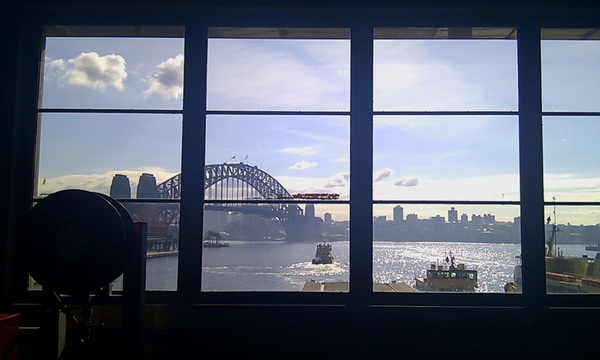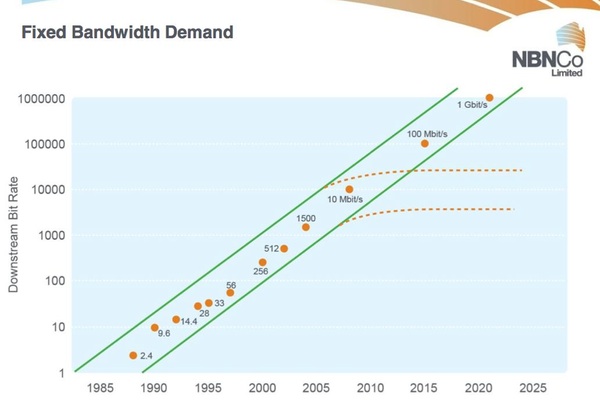Stilgherrian is, on most occasions, one of the leading technology writers in Australia — his coverage of the planned internet filter was first class, as was his recent reporting of the planned $400 million under-sea cable between Sydney and Los Angeles. However, Stilgherrian let his lofty standards drop and seriously damaged his journalistic credibility with his blinding support for the National Broadband Network (NBN). Sadly, it appears that Stilgherrian’s ostensible desire that other people to pay for a shiny piece of broadband infrastructure has gotten in the way of him actually considering whether the multi-billion dollar public investment is a good idea for Australian taxpayers.
Stilgherrian launched a blistering attack on an article I wrote in Crikey, alleging that it was “full of misunderstandings and straight-up mistakes”. A somewhat ironic comment given most of his criticisms were themselves quite obviously incorrect. Specifically, Stilgherrian stated that:
[Schwab] thinks the NBN is an internet service provider (ISP). He wants it to deliver short-term commercial return on investment. And he doesn’t differentiate between needs now and a decade or two or three in the future.
Perhaps Stilgherrian should have either read the original article properly or spent thirty seconds contacting me before jumping to incorrect conclusions as to my ‘thoughts’. Nowhere in the original article was it stated that the NBN would be a retail network. The NBN has always been a wholesale network. The original article referred to the speculated final retail prices which may result from the NBN, but did not specify that the NBN would be the retailer. Nor was that point even remotely relevant to the main intent of the article.
Second, the original article also never referred to a ‘short-term commercial return on investment’. Rather, the it noted that no proper cost/benefit analysis had been undertaken. It is correct that ‘return on investment’ to taxpayers is not a purely financial determination (for example, returns from a public investment will partly be in the form of higher living standards which flows from the investment). But the article was making the specific point that no analysis of the returns had been undertaken (instead, proponents of the NBN had pointed to rather unconvincing benefits, like eHealth or the ability to hold videoconferencing as justifications for the project).
It is certainly possible that if such an analysis were ever carried out the study may deem that the NBN is in the best interests of taxpayers (although critics claim that such is unlikely given the inevitable ‘waste’ and inefficiencies which would result from a public project of such a size). The point remains — no such determination was ever undertaken.
Like many proponents of the NBN, Stilgherrian falls into the trap of simply assuming “faster internet is better”, regardless of the costs. Of course, prima facie, faster internet is superior to slower internet. I, like most people, would prefer faster broadband. I, like most people, would also like the Government to buy me a Porsche. However, it is preferable that the Government does not make spending decisions based on the desires of certain individuals rather than the economy as a whole, as that would result in misallocation of capital and a terrible waste of taxpayer money. (Admittedly, there are many other terrible Government policies from both sides of the political spectrum, so the NBN is certainly not the worst Government promise, just the most expensive).
A decision on the scale of the NBN should be properly considered — the costs (which are obviously financial, and look like bring are in the range of $30-$35 billion — depending on the final result of the Telstra deal) should be weighed against all the benefits of the faster broadband infrastructure which too may be substantial but are in the most part, still unidentified.
Stilgherrian then submitted a range of reasons why the public benefit resulting from faster broadband outweighs the cost, including inserting a nice-looking graph prepared by none other than the National Broadband Network itself.
Stilgherrian also made a couple of valid, yet obvious points — wireless in itself is not a sole solution and certainly isn’t able to carry the amount of data of fibre. But that is to ignore other existing infrastructure and the fact that private companies (like iiNet, TPG, Foxtel and Telstra) are also able to roll out high speed broadband to compliment existing infrastructure. (Most CBD businesses already have high speed broadband).
There is also the option of having a broadband network which covers predominantly higher density areas at a marginally lower speed, substantially mitigating the cost but retaining many of the benefits Stilgherrian referred to.
The NBN was drastically altered at the time of the global financial crisis by a Government which was looking to stimulate the economy without proper economic analysis. The plan went from a $6 billion to a $4 billion to a $43 billion scheme at what appeared to be the whim of a now deposed Prime Minister. The original article questioned whether that remains the correct decision for Australian taxpayers. It may be, but to the decision has become so politically clouded that taxpayers can’t be confident that they are receiving a return (be it financial or otherwise) from their investment.






